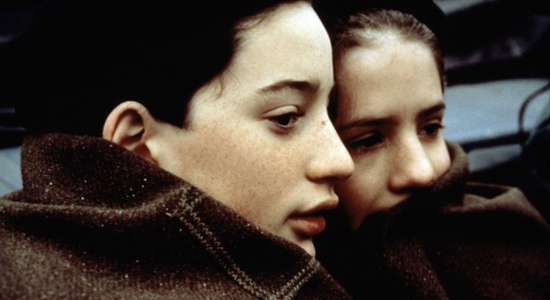MAGNET contributing writer Jud Cost is sharing some of the wealth of classic films he’s been lucky enough to see over the past 40 years. Trolling the backwaters of cinema, he has worked up a list of more than 500 titles—from the silent era through the ’90s—that you may have missed. A new selection, all currently available on DVD, appears every week.

Au Revoir Les Enfants (1987, 104 minutes)
This gripping tale of Nazi officials outing Jews from the French educational system was a worldwide favorite from Louis Malle (Elevator To The Gallows, Murmur Of The Heart). It was fueled by incidents that took place during Malle’s childhood in occupied France during the early days of World War II.
French Literature student Julien Quentin (Gaspard Manesse) is reading a free verse selection by poet Charles Peguy at a pretty good clip when he is stopped in mid-sentence by the instructor, a Roman Catholic priest. “M. Quentin, you are ready for the Comedie Francais,” he says to general uproar from Quentin’s teenage classmates. “Can you tell us who Charles Peguy was?” asks the professor. “He was killed in the First World War,” replies Julien. “You’re starting at the end of the story,” assesses the teacher as Quentin spins a Geometry compass on the palm of his hand until the point digs a hole large enough for a little blood to be seen.
During recess, the boys joust with one another on wooden stilts, hurling epithets as though they were the foot soldiers of Richard The Lionhearted battling the Moors. Over a hearty lunch of meat and bread, one student reads a biblical verse: “St. Simeon was 13 when he was tending his father’s sheep and heard this verse: ‘Woe unto ye who laughs. The time shall come when you shall weep.’ St. Simeon left home to become a hermit and lived 30 years atop a column.” Lost on the students, this bit of knowledge emits only further riotous laughter.
In afternoon’s Algebra class the instructor, a wiry old man in a blue beret, asks for volunteers to put an equation on the blackboard. The new boy, Jean Bonnet, renders the work perfectly in chalk to the instructor’s approval. An air raid siren sounds nearby, and the teacher reminds his pupils that class is still in session and to bring their texts down into the bomb shelter. By the flickering glow of a few naked light bulbs, they continue the lesson underground as the sound of bombs approaches. Quentin and Bonnet (Raphael Fejto) shine a flashlight around their surroundings as the others begin to recite, “Hail Mary, full of grace, the Lord is with thee … ” Quentin joins in the refrain, although Bonnet seems unaware of the verse.
The next day, Quentin struggles to get through the simplest of piano exercises. “It’s an A-sharp. Can’t you hear when you hit a wrong note?” asks the instructor, a girl not much older than the boy himself, as she distractedly files her nails. When Quentin’s time expires, she opens her book of sheet music to a more difficult piece to assess the talent of her next pupil, the new boy, Bonnet. He plays it easily with such passion that Quentin stays to listen through the studio’s window.






